A bed planted up with Primula sieboldii – or perhaps even better, a collection of the plants in pots – is a remarkable sight. Primula sieboldii appear in a range of colours, from white (and here we really do mean white, not cream or ivory) through to rich pinks and blue lilacs. The petal shapes are equally varied, from regular petals through to extravagantly divided ones.
Primula is an enormous genus, with much botanical wrangling over classification. All are early and free flowering, starting into growth at low temperatures, which gives them a head start over neighbouring plants. All are from relatively unstable habitats, so produce plenty of seed to keep the species going, but rarely make reliably long-lived garden plants.
Primula sieboldii has been enjoying something of a renaissance. It is now firmly established in cultivation in both Europe and the USA, but it has yet to become common. One reason may be that to thrive long term these plants need very specific conditions. But for something so beautiful, with such a long flowering season – from mid-March to early June – and showing such a variety of colour and shape, that extra effort seems a small price. Be warned though, they are so extremely addictive you’ll find it almost impossible to buy just one. See below for Noel's choices of Primula sieboldii.
What is Primula Sieboldi A deciduous, slow-clumping, herbaceous perennial. Also known as Siebold primrose.
Origins Northeast Asia.
Season Spring to early summer.
Size 30cm high; clumps form to a maximum of 30cm across.
Conditions Cool, woodland, light shade. Moist but well-drained, humus-rich soil. Hardiness rating RHS H7, USDA 3a-8b.
1
Primula sieboldii ‘Mai-ôgi’
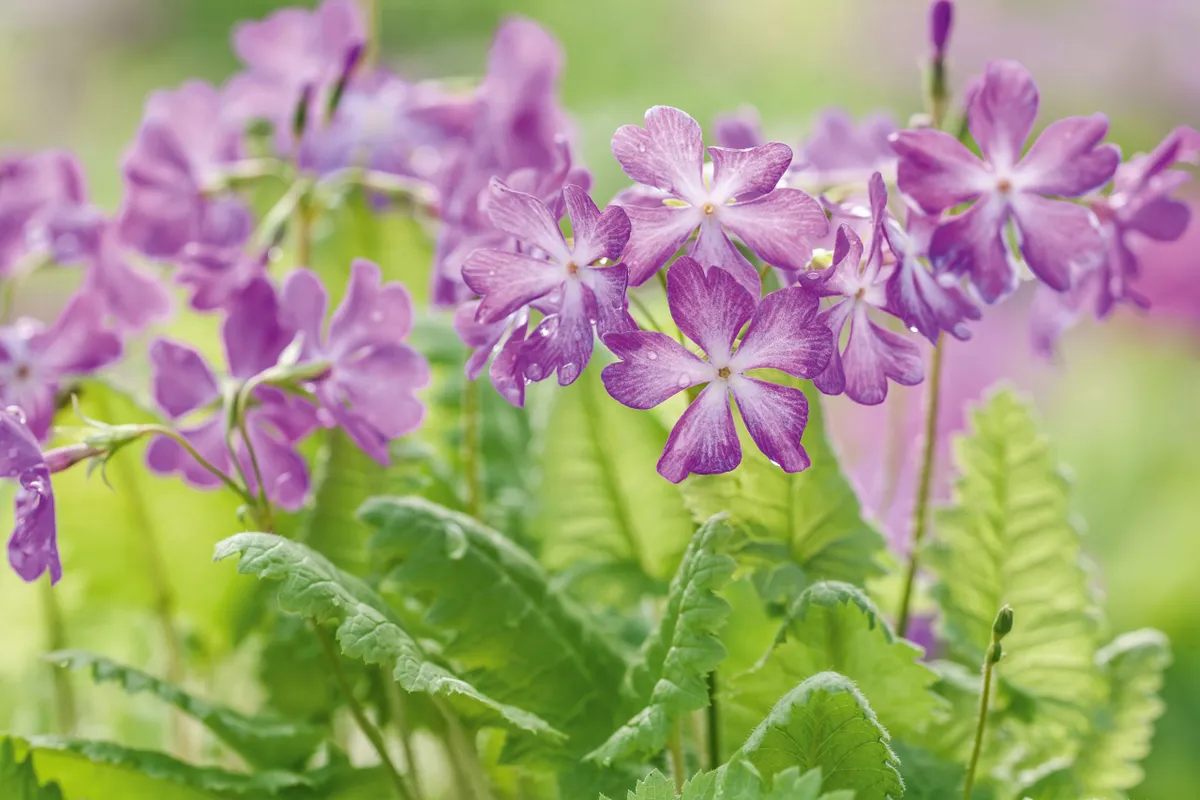
The undivided petals of this cultivar, known from the early 1800s, is typical of the wild plant and of older cultivars. The lush, green foliage, with the distinct scalloping of the leaf margins, is typical of all the Primula sieboldiis.
2
Primula sieboldii ‘Seraphim’
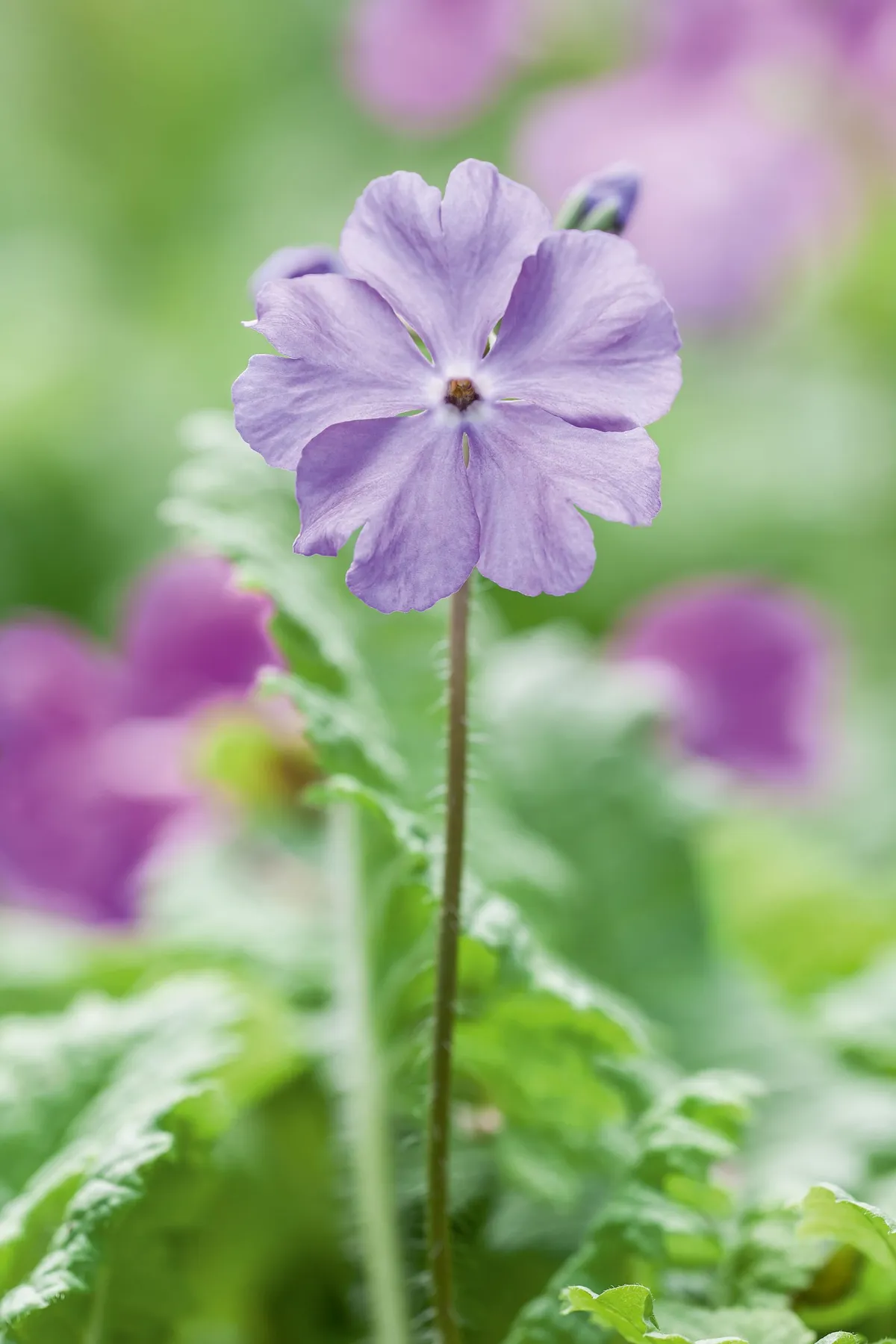
Originally bred by Alan Bloom at Bressingham Gardens in Norfolk, this primula cultivar has large flowers in soft mauve-blue.
3
Primula sieboldii ‘Blue Lagoon’

A pale-centred primula flower with rich, lavender-blue flowers and overlapping petals. Another cultivar bred by Alan Bloom at Bressingham.
4
Primula sieboldii ‘Sumizomegenji’
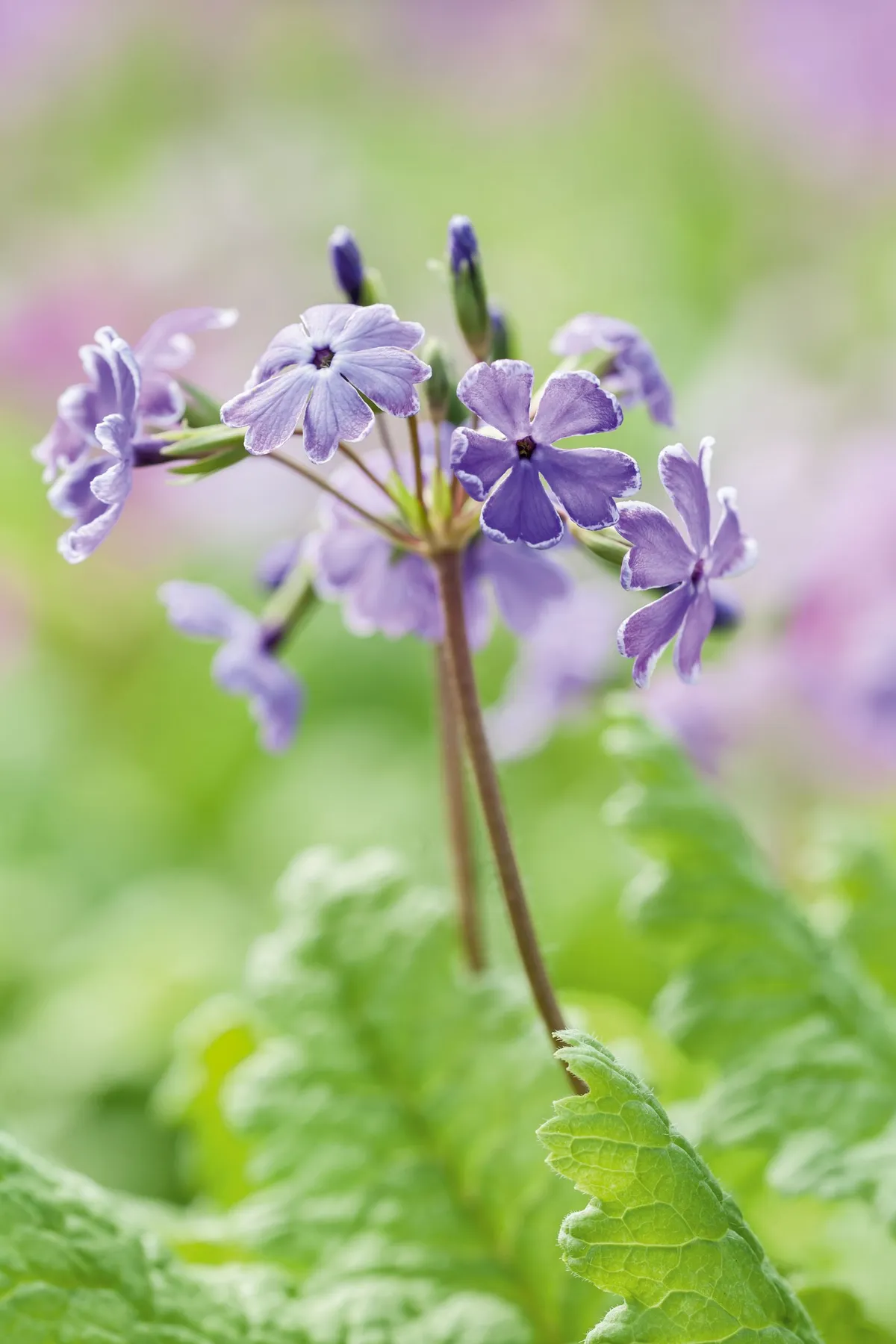
A vigorous primula grower with unusual colouring: a white edge and pale centre. The blue-mauve of the petals is also repeated in the throat.
5
Primula sieboldii ‘Frilly Blue’
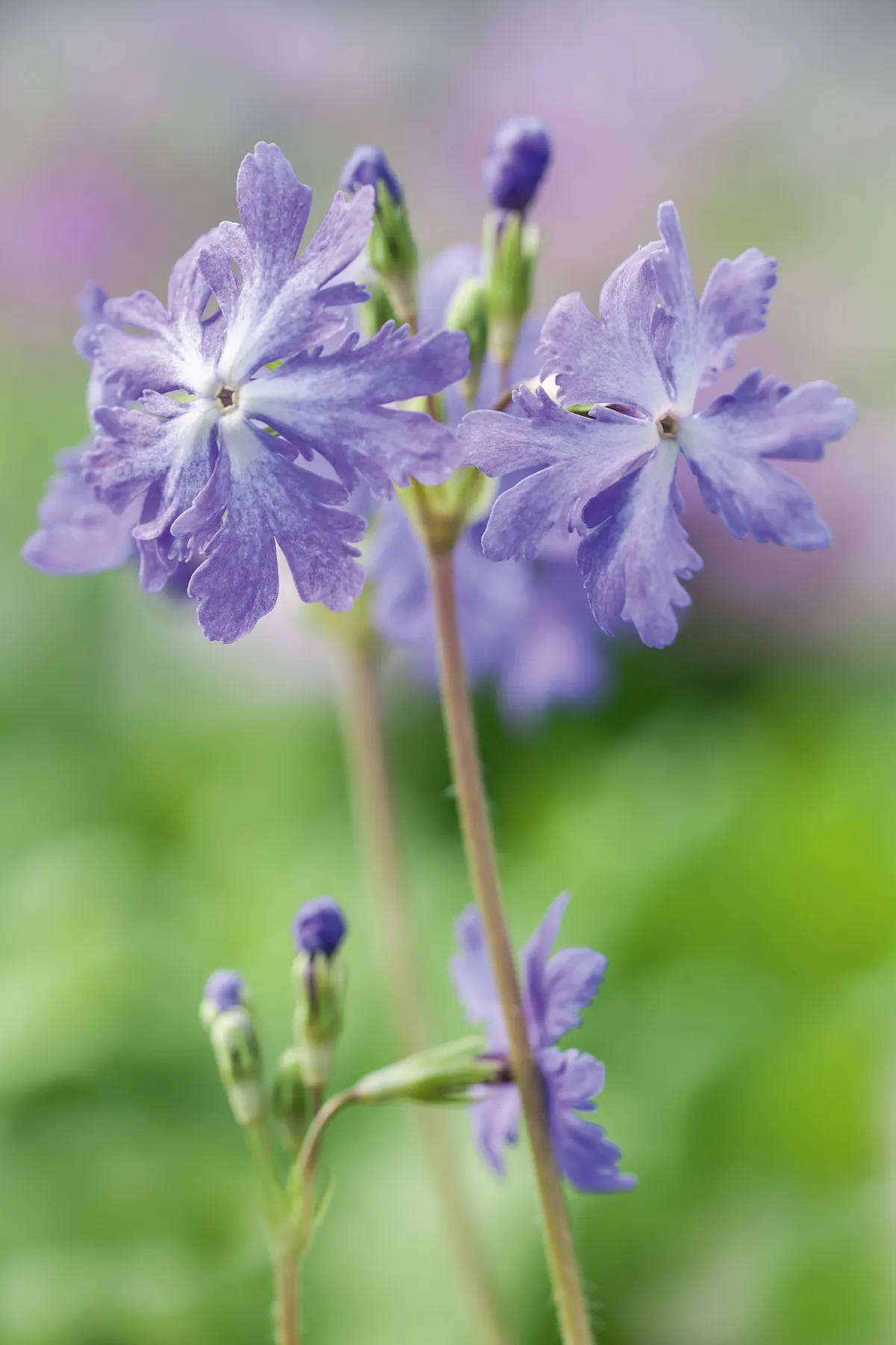
Deeply divided petals give this primula cultivar a slightly unkempt look. However, its blue is as blue as you’ll find among the primula sieboldiis.
6
Primula sieboldii ‘Martin Nest Blue’
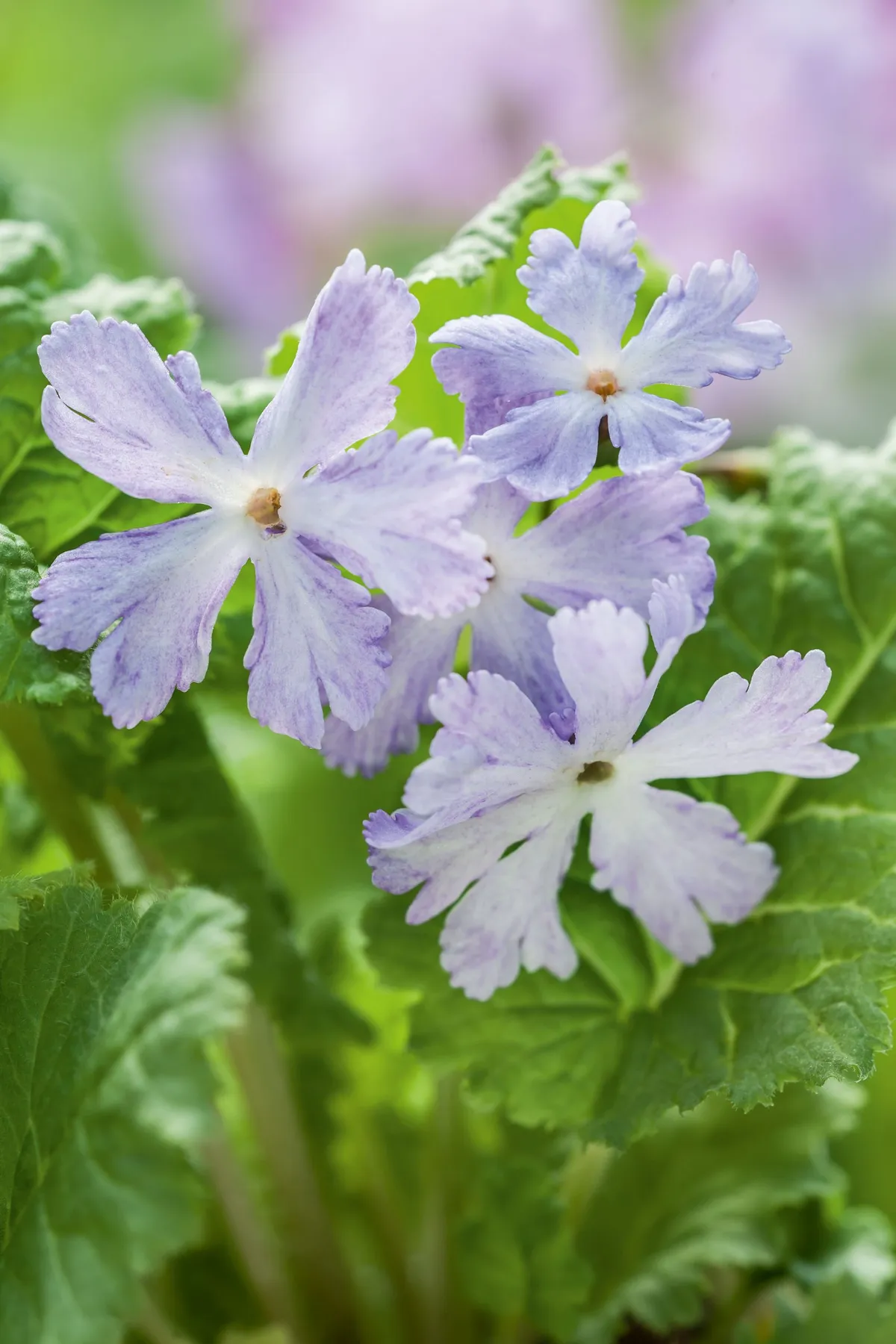
Slightly fringed, very pale mauve-blue primula flowers that become slightly more pink with age.
7
Primula sieboldii ‘Kokoroiki’
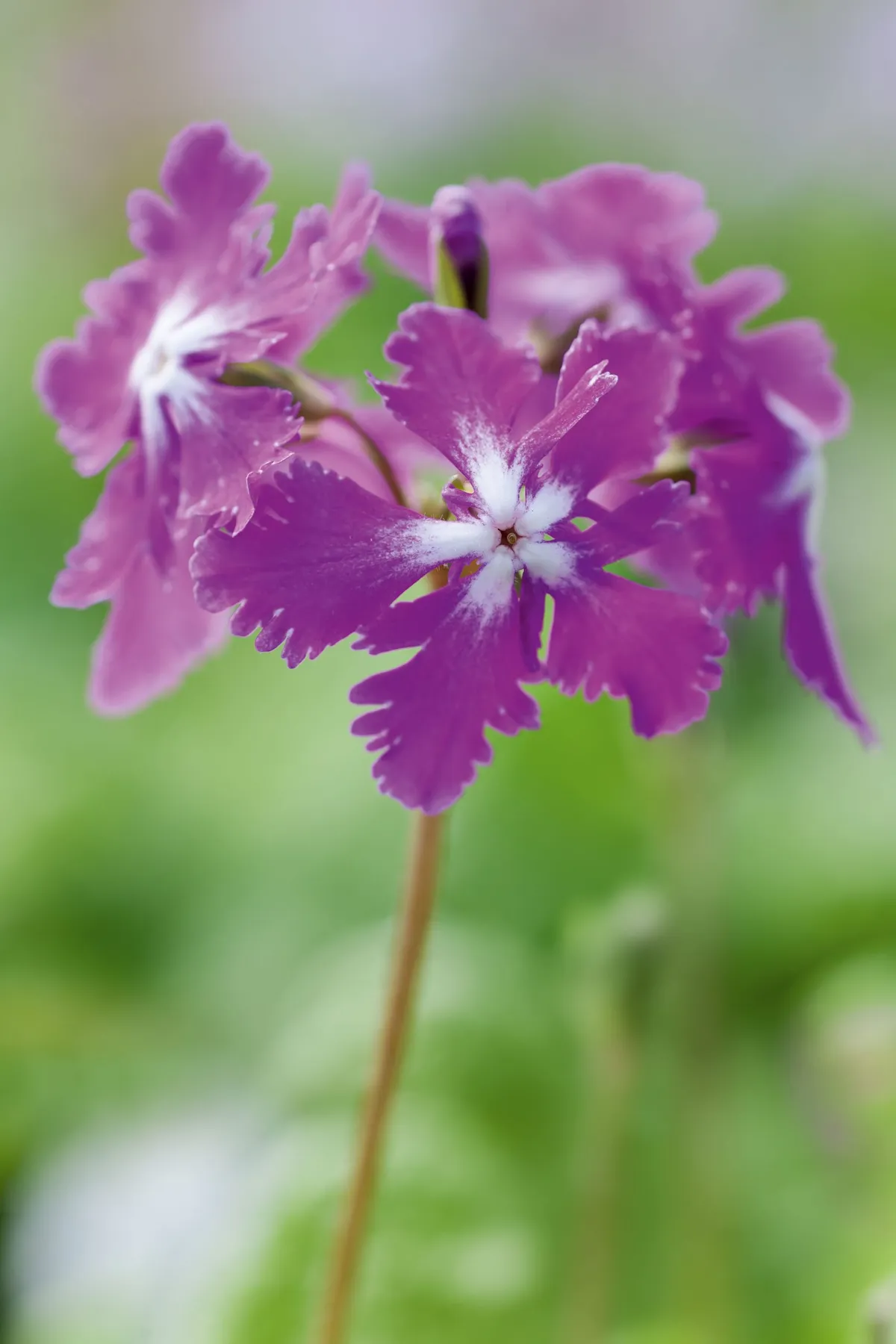
Deep mauve-tone pink primula flowers with a striking star-shaped, white, central eye. Its name translates from Japanese as ‘spirit’.
8
Primula sieboldii ‘Cherubim’
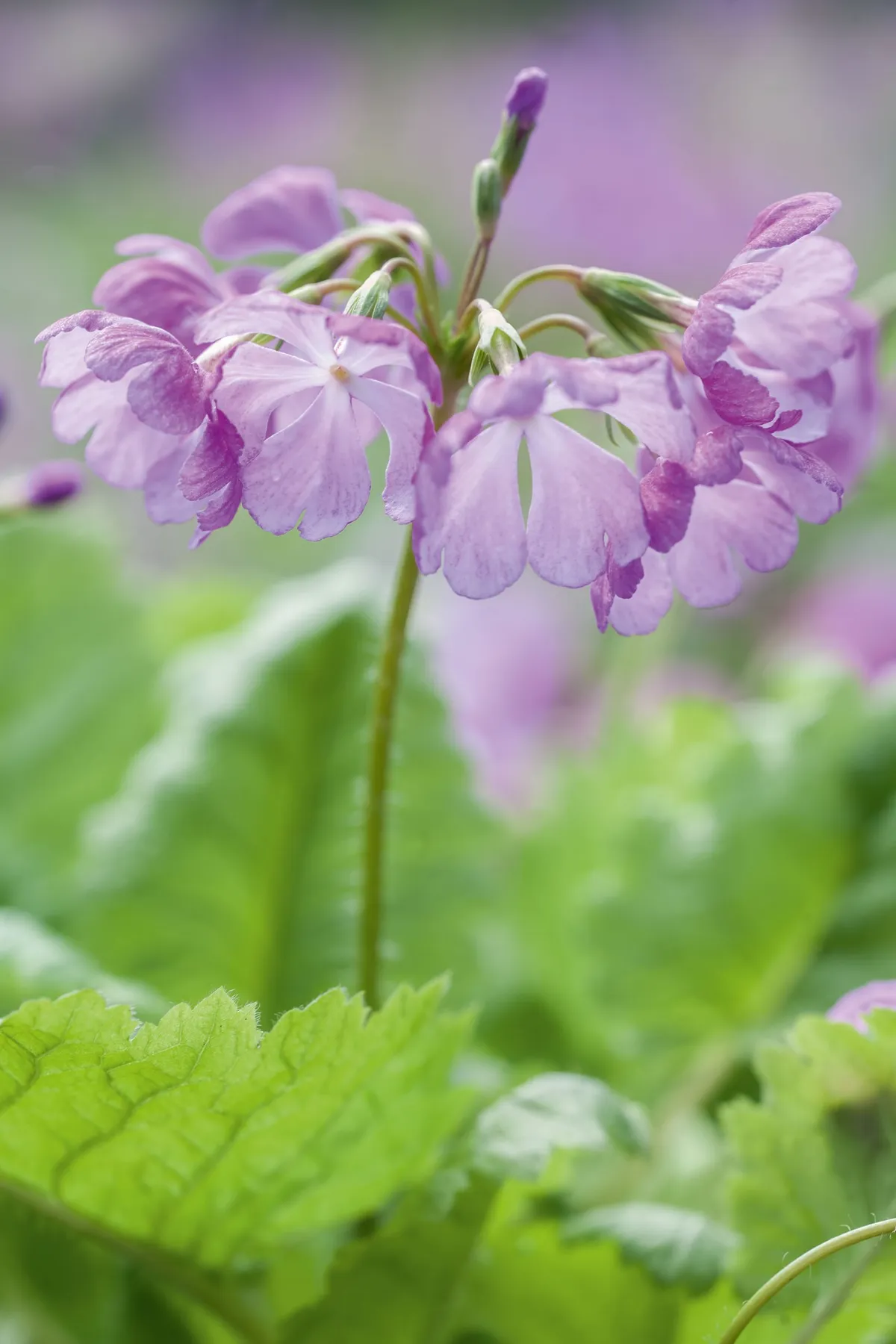
A pretty primula cultivar with pale, mauve-pink flowers and undivided petals that resembles the ancestral form of the species.
9
Primula sieboldii ‘Sekidaiko’
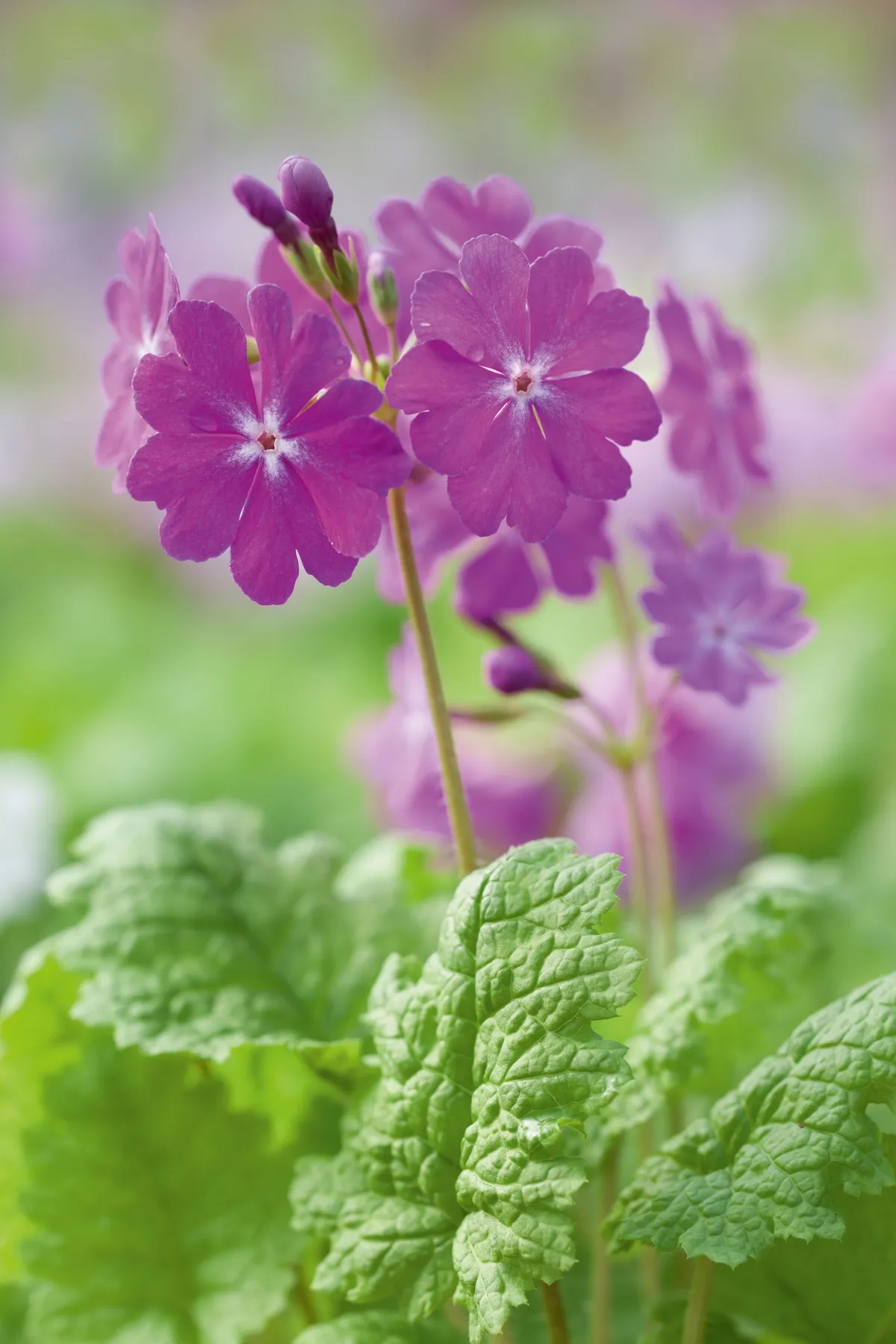
With a rich, deep-pink colouring and primula petals that form a full, flat flower, this is one of the most formal and regular in appearance.
10
Primula sieboldii ‘Keepsakes’
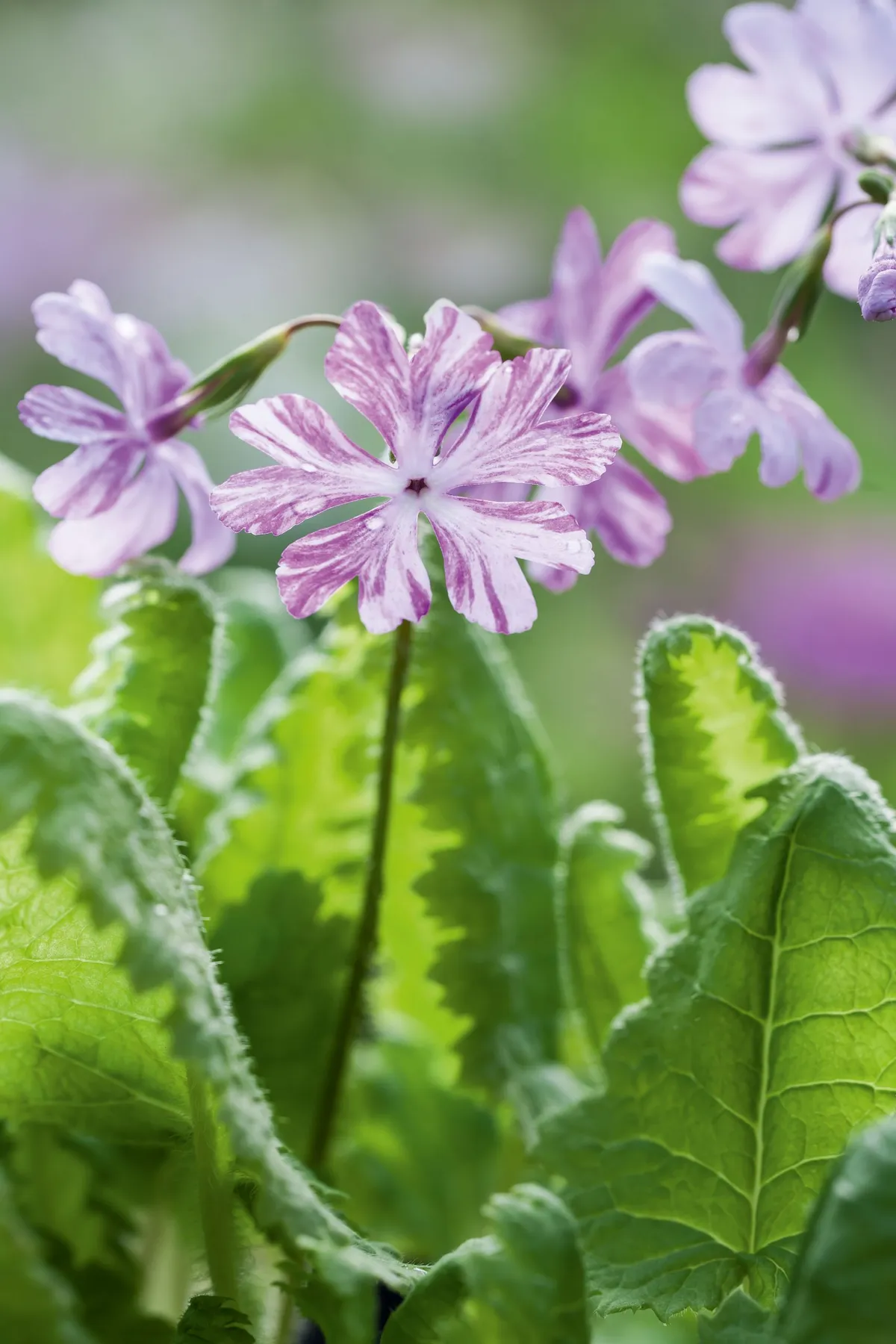
A pretty cultivar with unusual streaking on the petals. Such markings didn’t appear on Primula sieboldii until the late 18th century.
11
Primula sieboldii ‘Iso-botan’
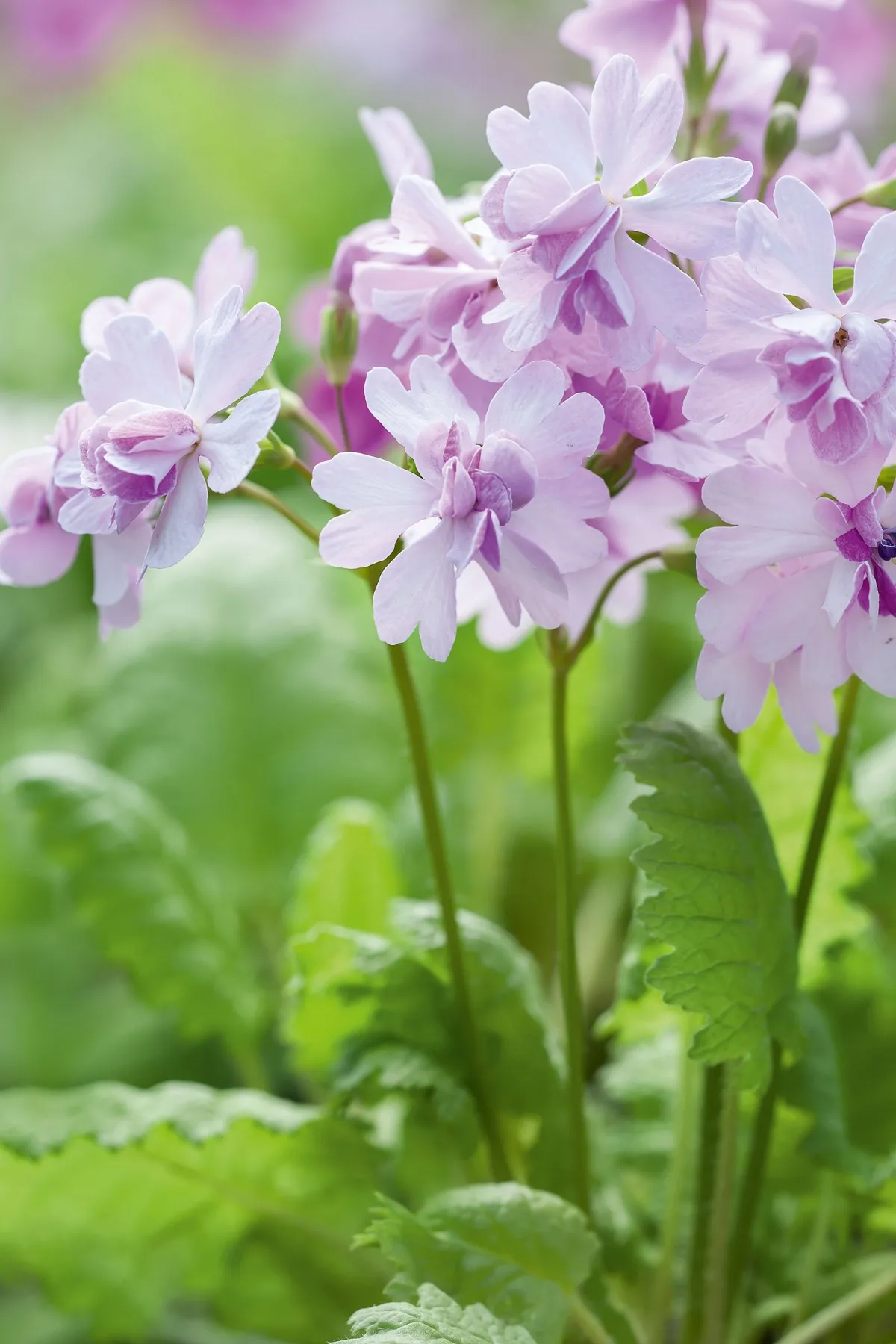
This semi-double primula cultivar is a recent arrival from Japan. It has pale streaking on pink flowers and partially bifurcated petals.
12
Primula sieboldii ‘Hana-monyo’
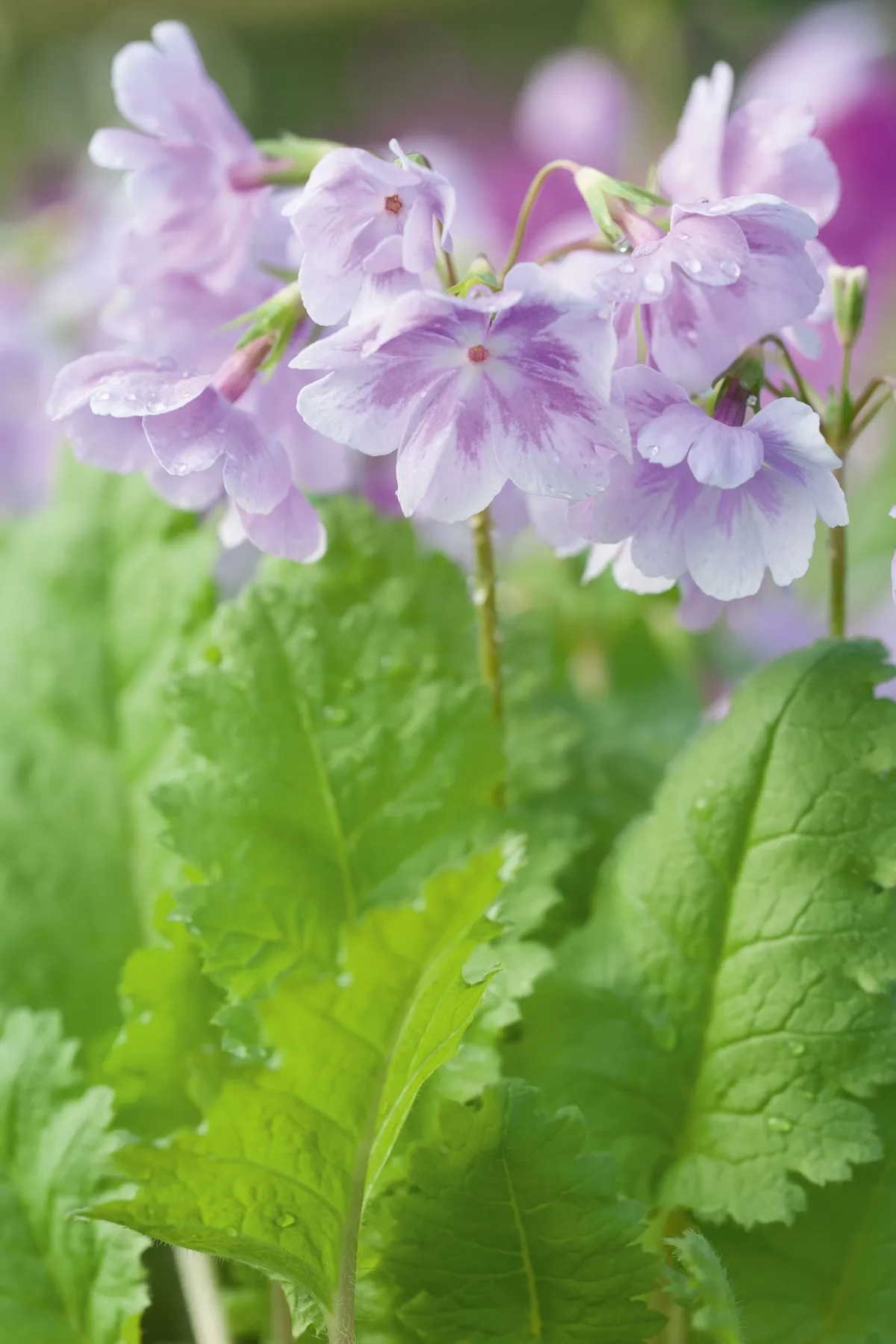
This delicate primula cultivar is a pale, mauve pink with a deeper tone seeping out of the centre. Its name translates as ‘blossom’.
13
Primula sieboldii ‘Daiminnishiki’
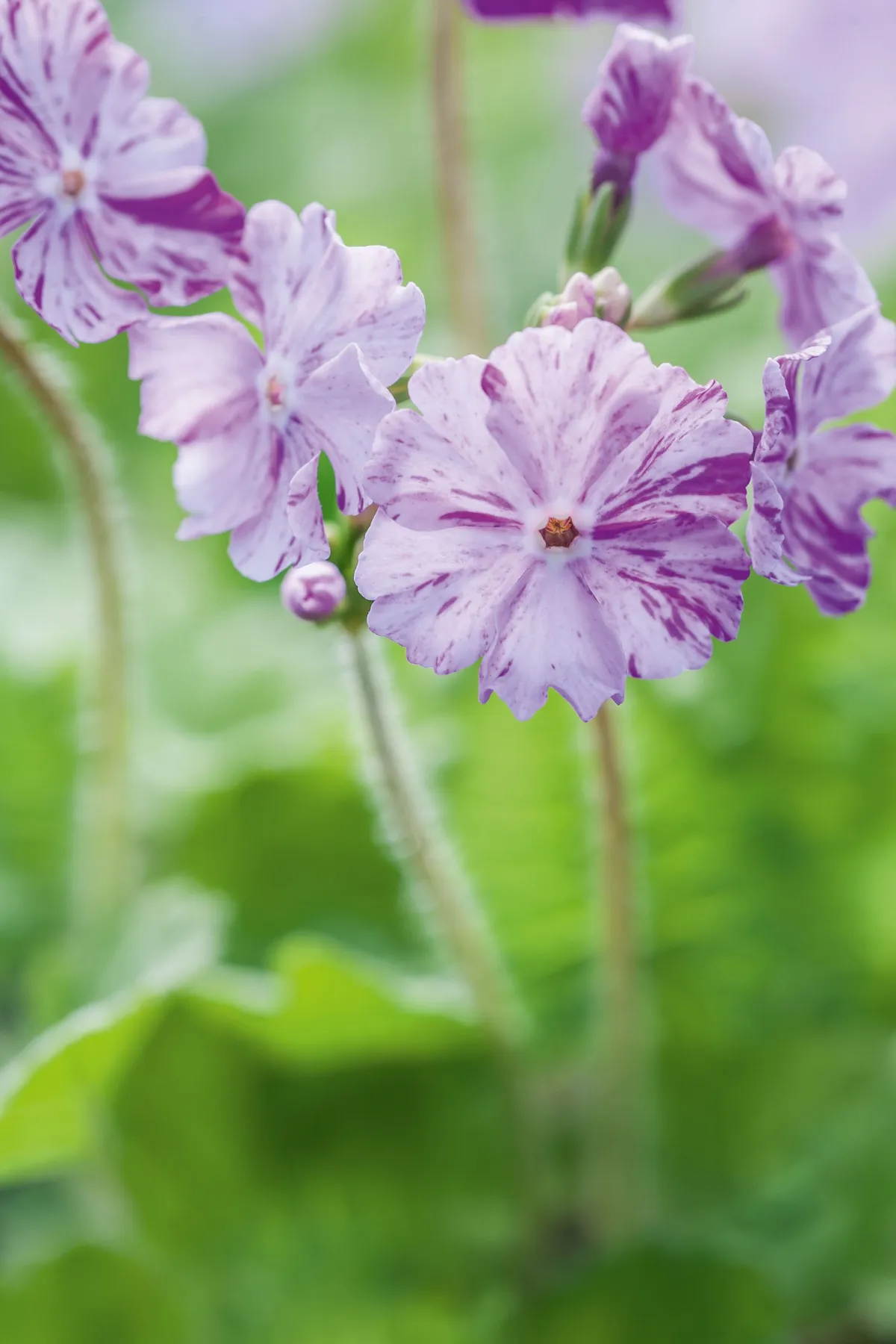
Although this cultivar’s primula flowers are normally distinctly streaked, it will occasionally produce shoots with plain pink flowers.
14
Primula sieboldii ‘Noboruko’
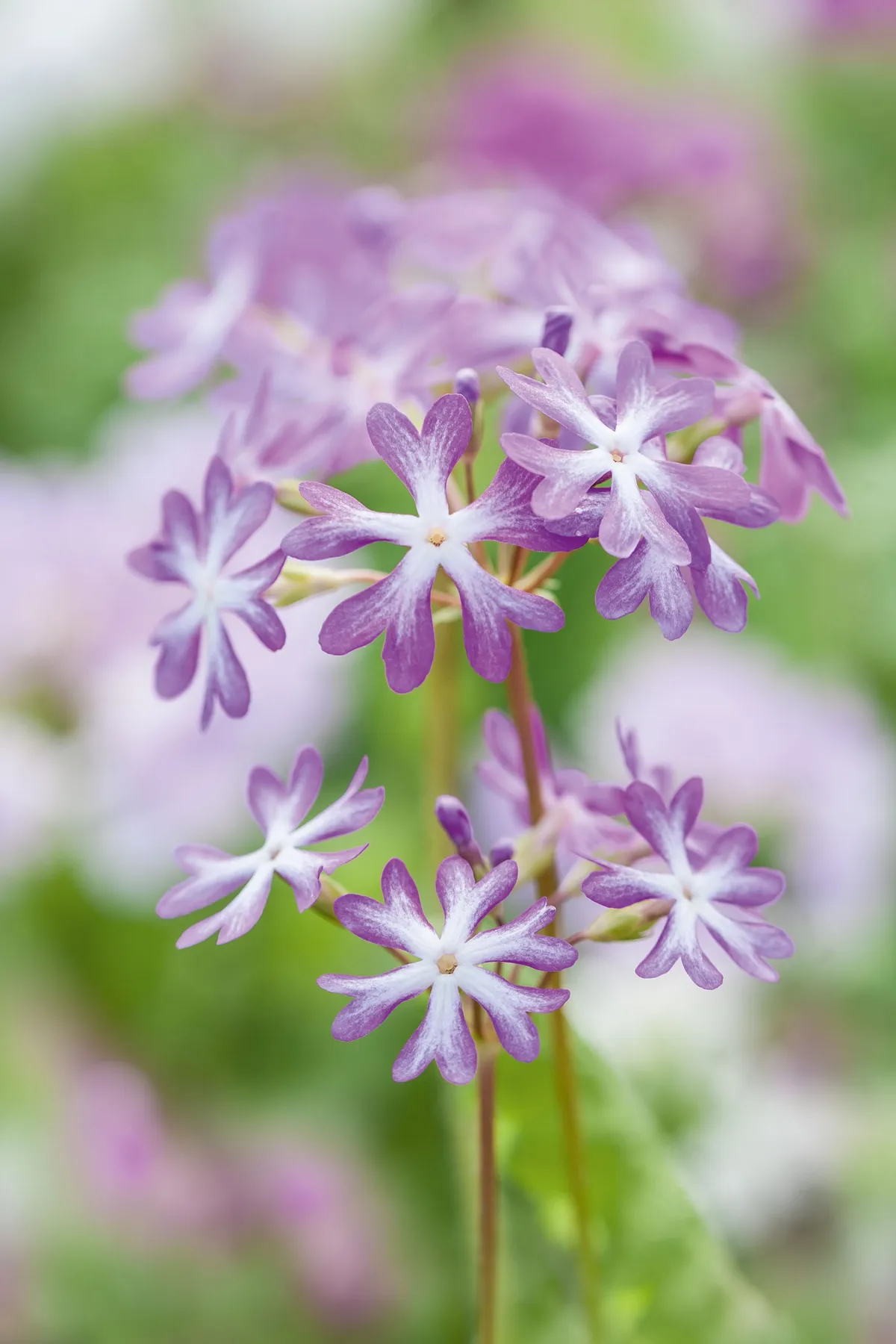
An exceptionally elegant primula cultivar that has some of the narrowest petals of all. It’s a flower shape that’s very popular in Japan.
15
Primula sieboldii ‘Martin Nest Pale Pink’
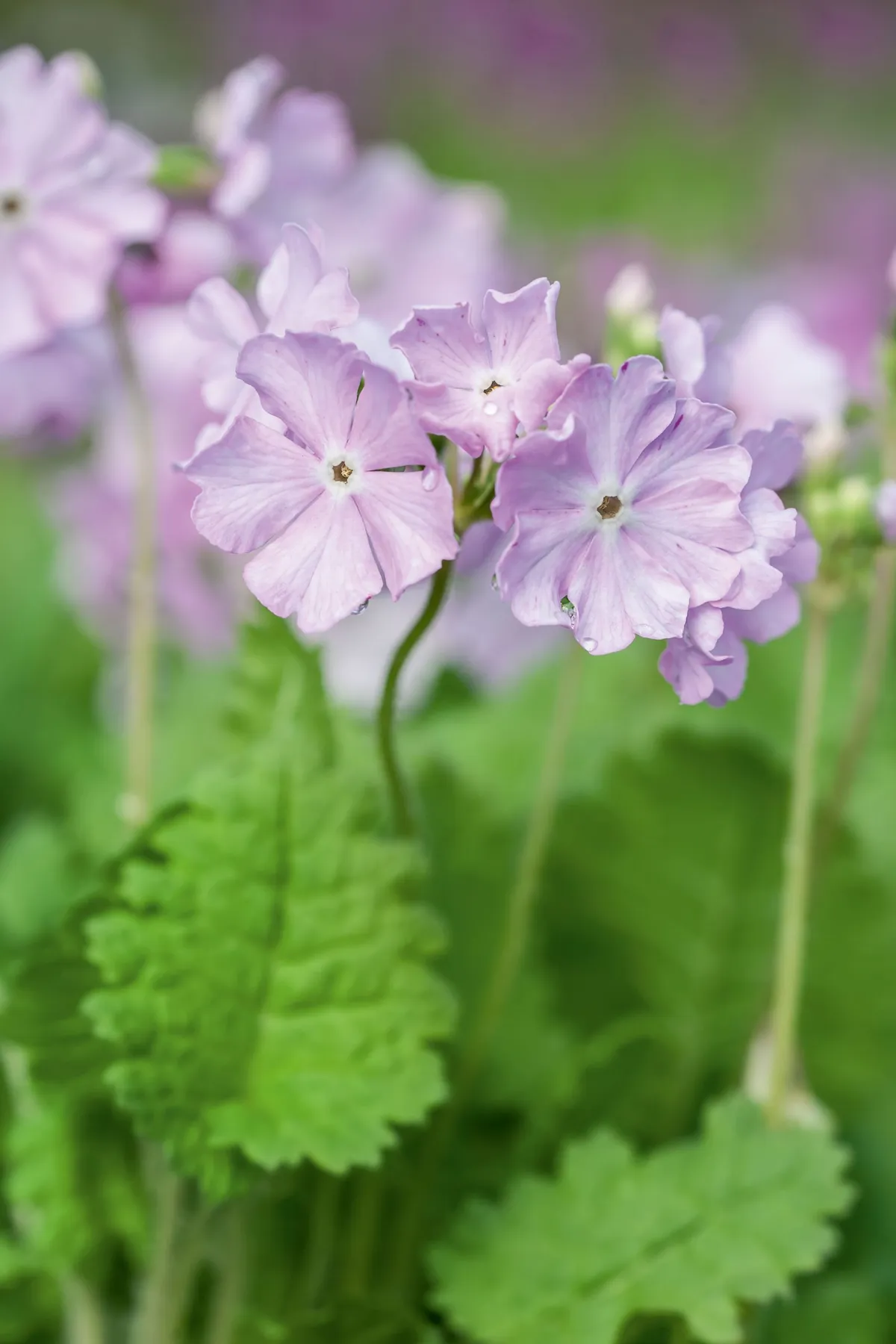
The solid, undivided petals of this primula cultivar, which was bred at the Martin Nest nursery in Lincolnshire, give its flowers real impact.
16
Primula sieboldii ‘Kashima’
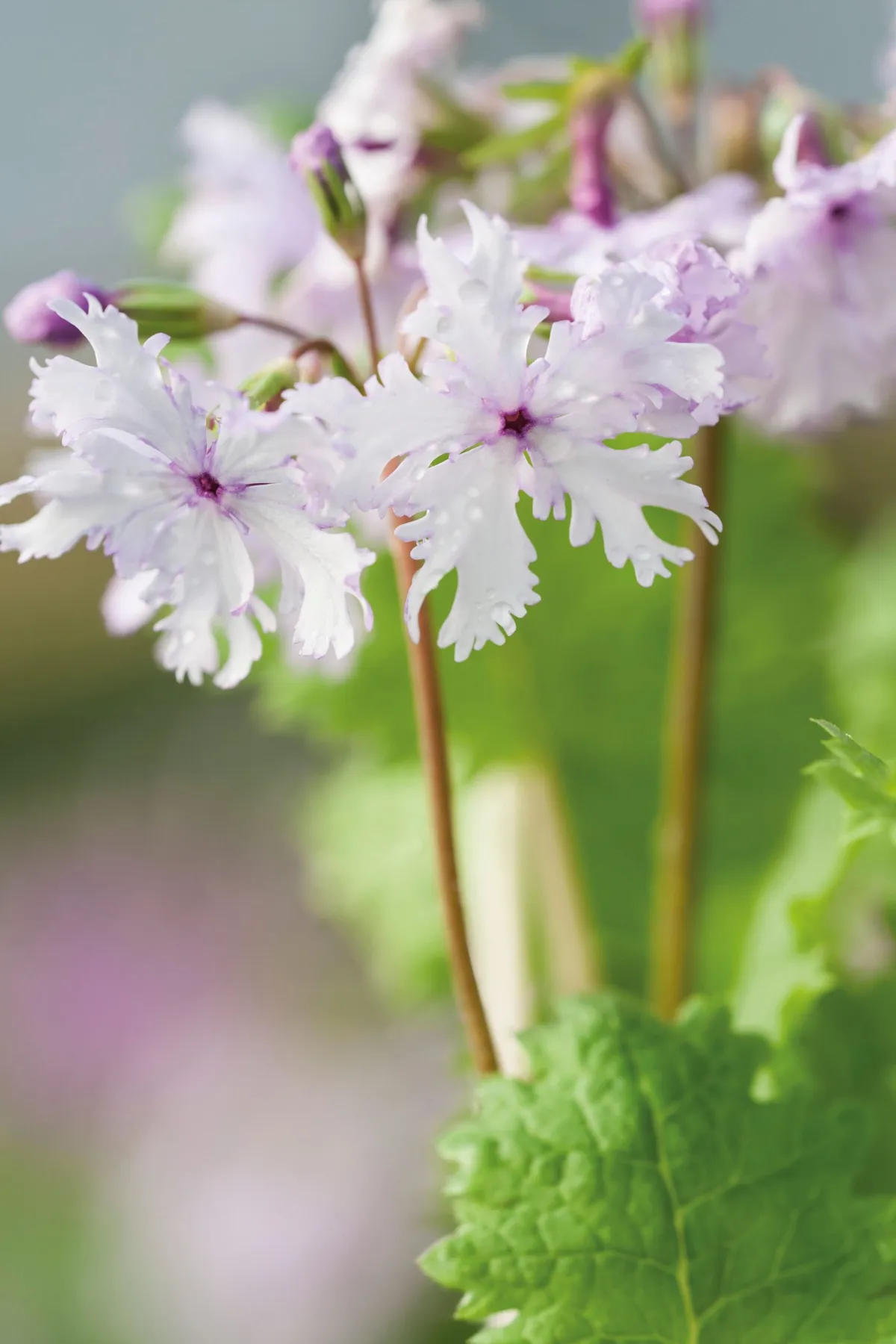
This deeply fringed, pink-centred, white primula cultivar, dates back to the mid 19th century –an especially fertile time for primula breeding.
17
Primula sieboldii ‘Usujanome’
A delicate, white cultivar known to have originated in the early 1800s, in the Saitama region of Japan, north of Tokyo.
18
Primula sieboldii ‘Shiro-tonbo’
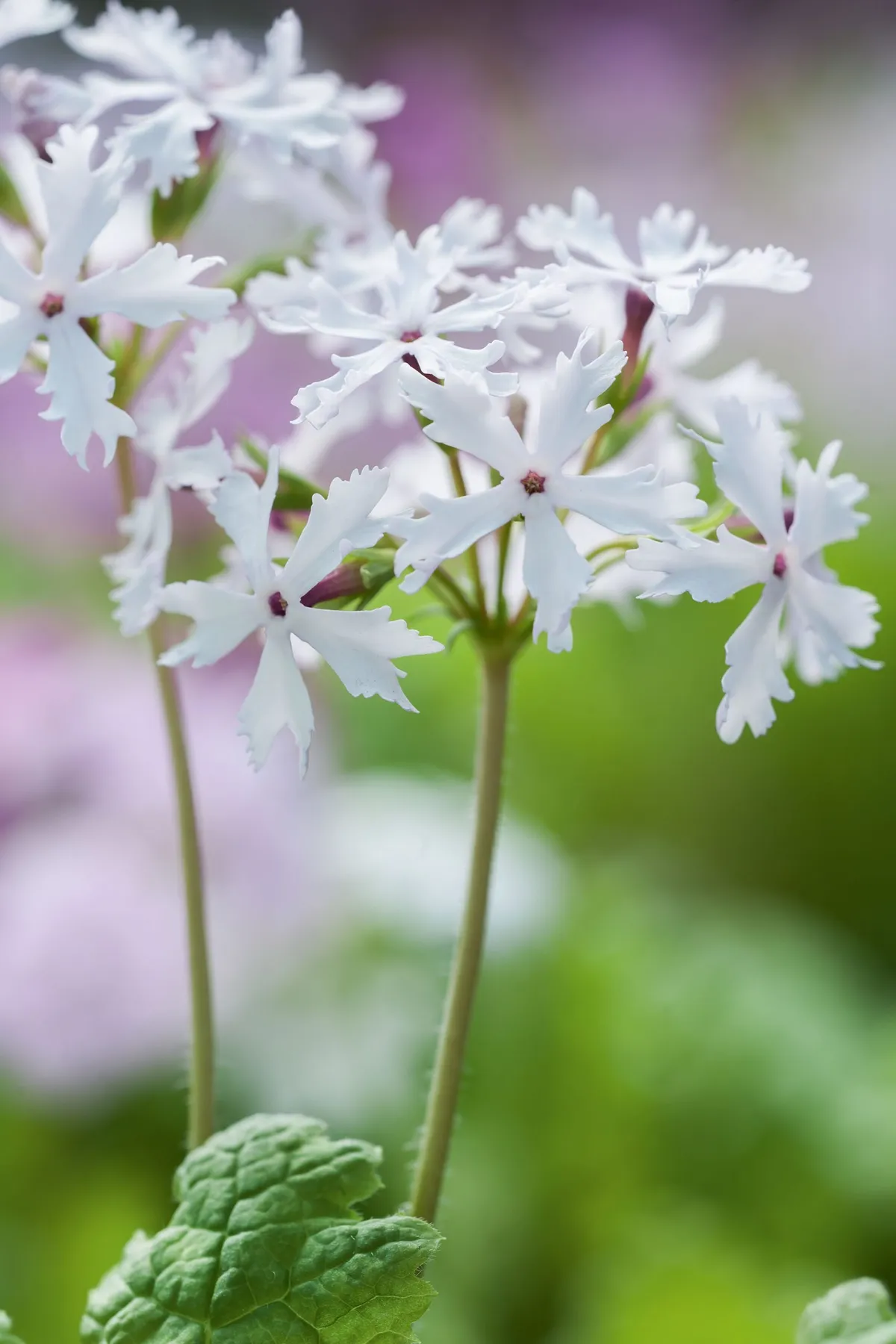
Of all the white primula cultivars this is one that truly deserves the sobriquet snowflake. Its long stems make it especially good for cutting.
19
Primula sieboldii ‘Aoba-no-fue’
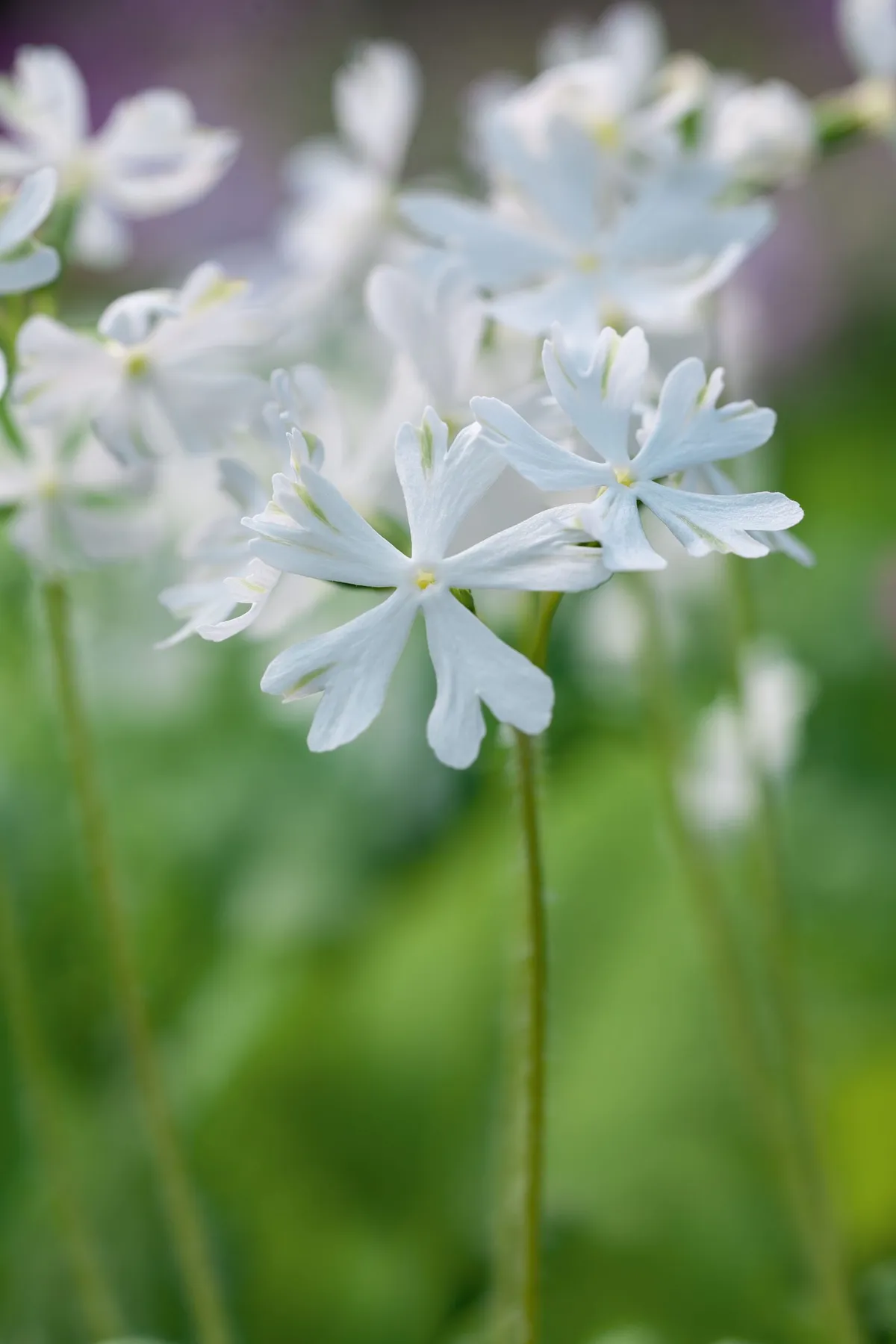
A cultivar bred in the Japanese province of Saitama in the 1700s. One of the oldest primula cultivars in cultivation in the west.
20
Primula sieboldii ‘Snowflake’
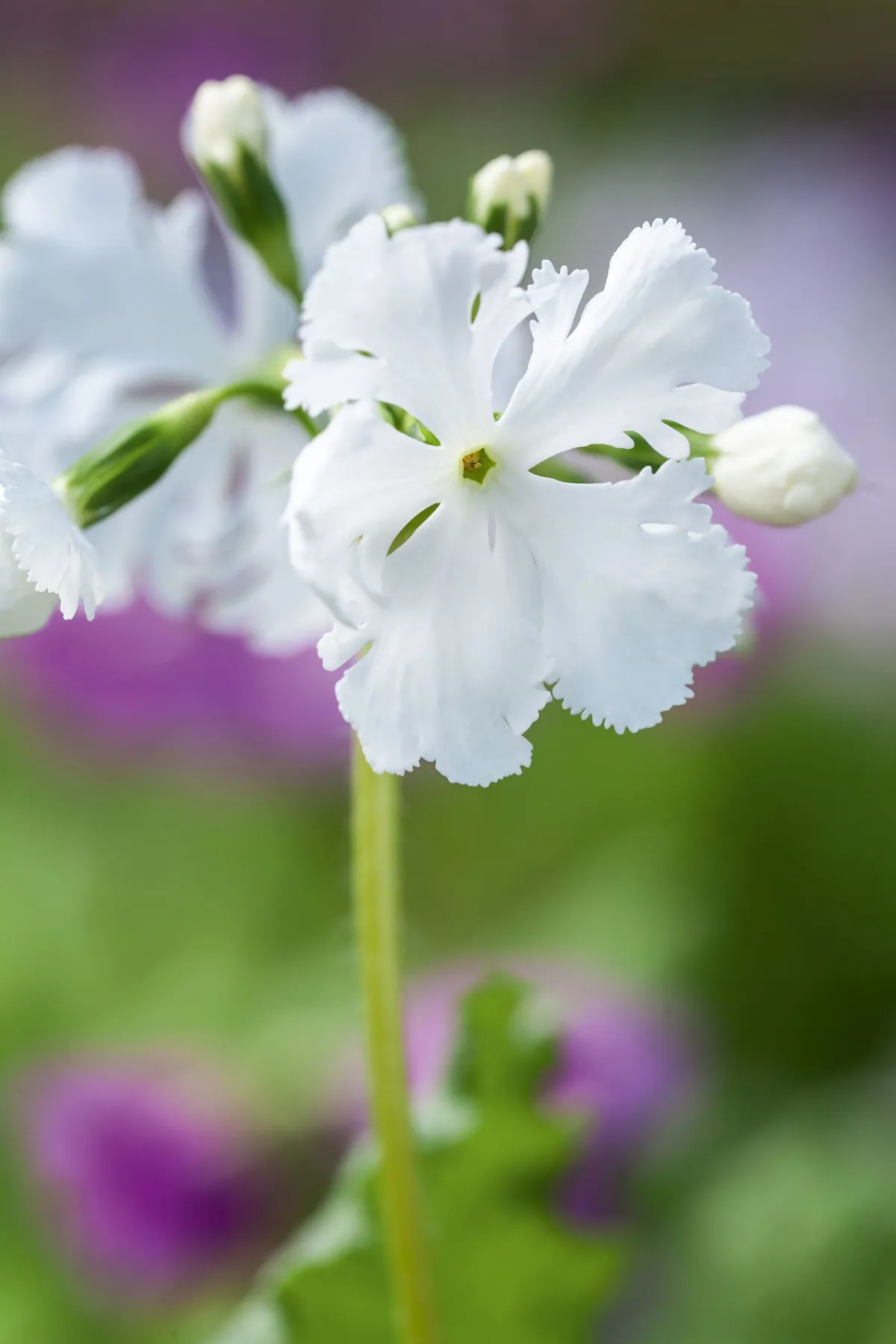
Rather chunky for a primula snowflake perhaps, but this cultivar’s wide, undivided petals emphasise the purity of its whiteness.
21
Primula sieboldii ‘Syutyuka’
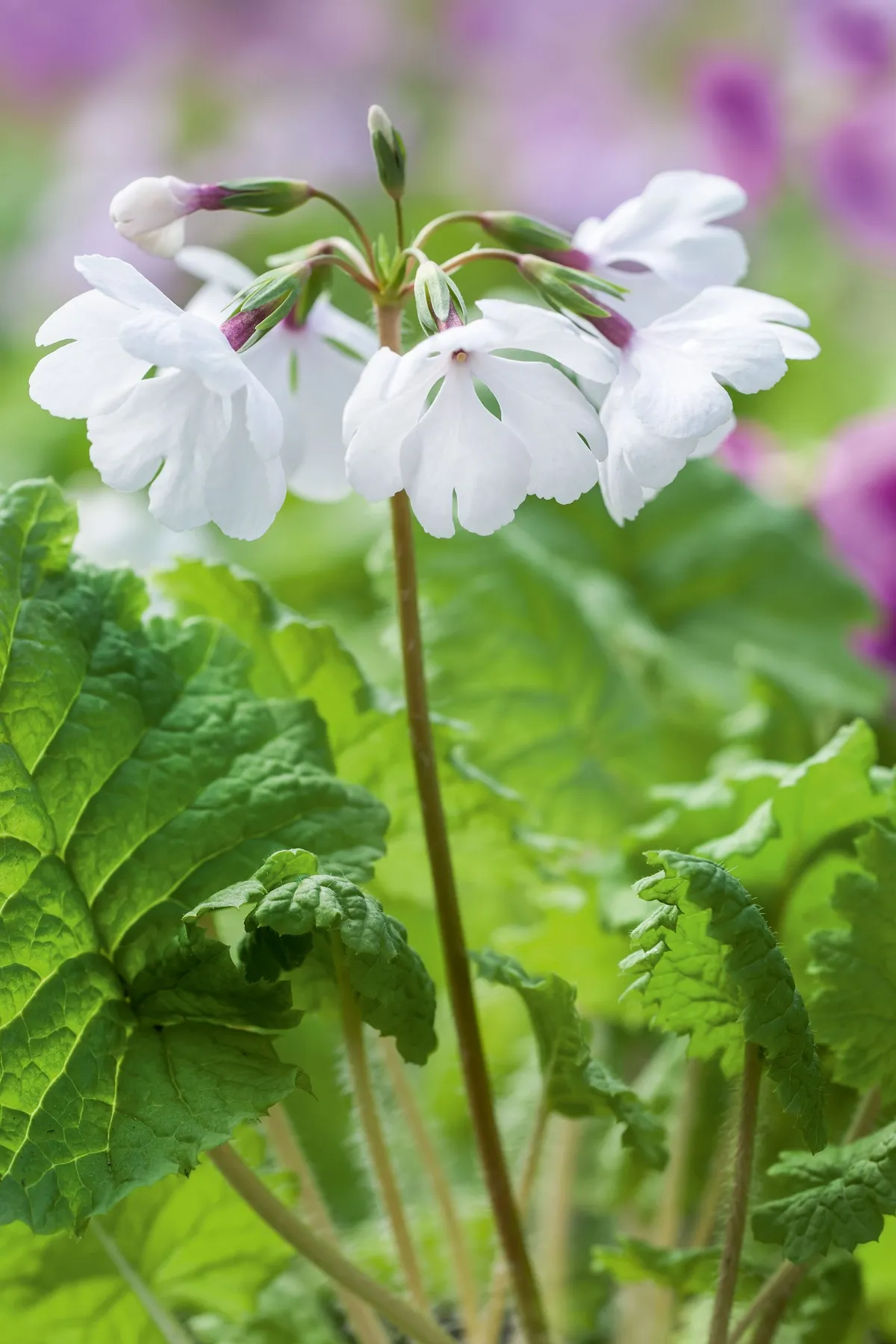
One of several of the white primula cultivars that have a very small carmine eye. It was recently developed in Japan.
